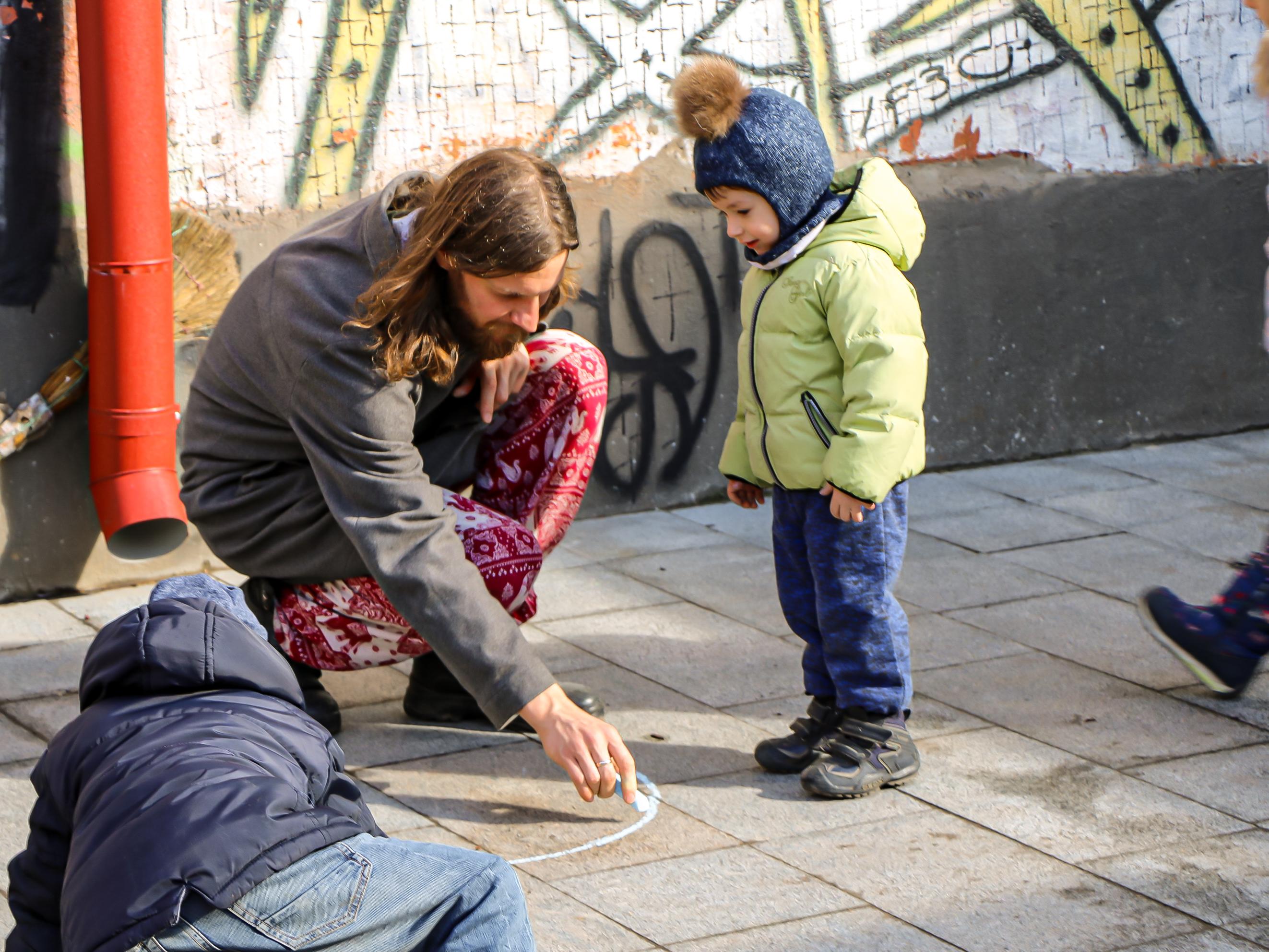“Life would be easier without stereotypes”. A veteran’s story who became an educator
“The service changed my views, in particular, my views on my job. I realized I wanted to help children and not help people ride the trains”, tells Dmytro.
At first, his friends were surprised by the fact Dmytro changed his occupation. “Almost everyone was hit by surprise, everyone immediately started making fun of it like: “oh, you are a nanny with mustache now!”.
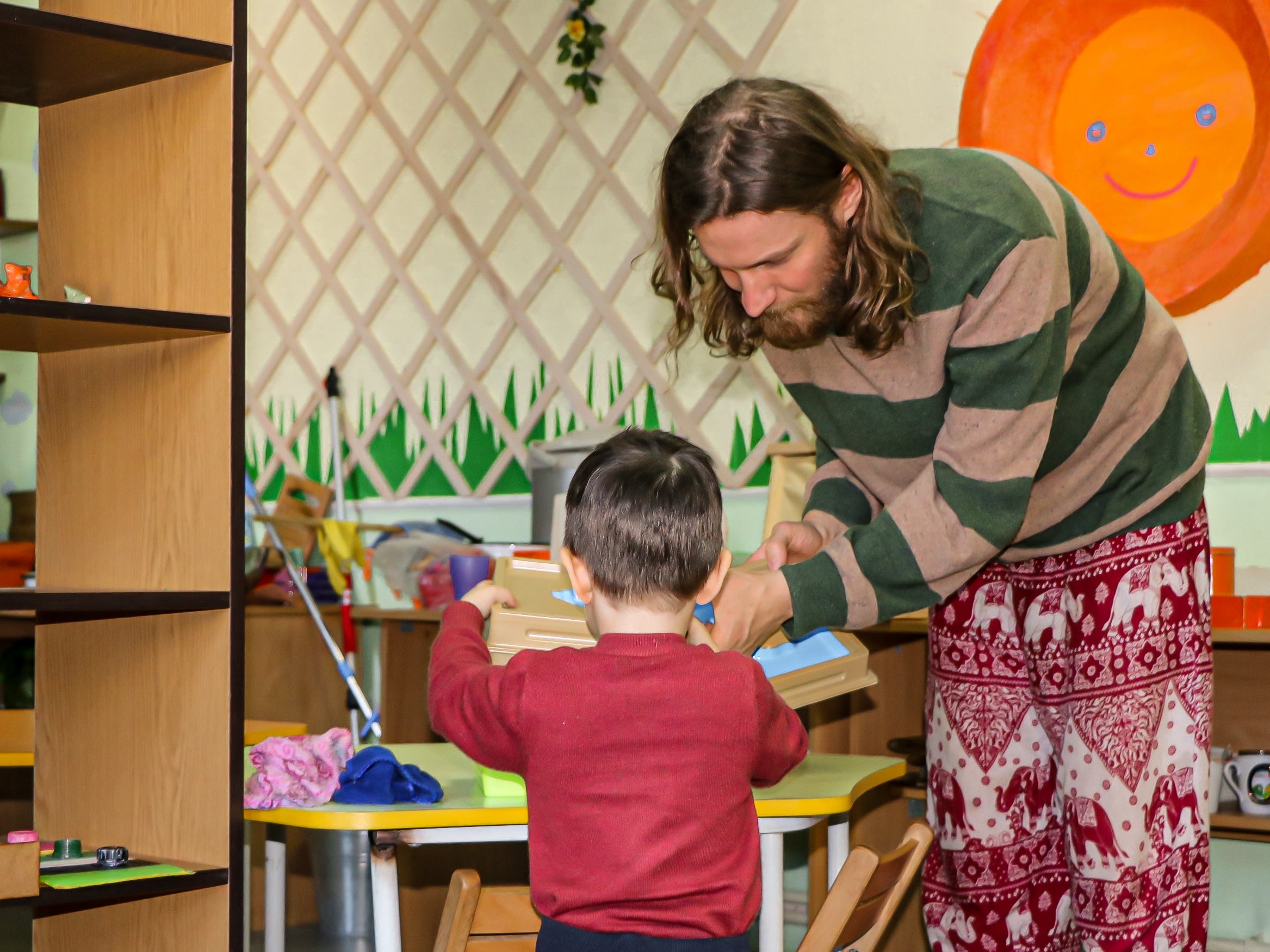
However, Dmytro doesn’t find jokes like this offensive. On the contrary - after being surprised people become interested in what he does. Sometimes he even advises the ones who want to try new methods of educating their children.
For Dmytro, it was hard to change the job because it was necessary to get a degree in education to be certified to work in a kindergarten. Luckily, he soon met a Montessori trained specialist who at that moment was looking for volunteers to work with children out of families with low income.
“She only asked me one question: “who are these children for you?” I replied: “they are just small people who are not yet adapted to life. I want to help them”. And they hired me”, says Dmytro.
After the interview he took a three-weeks training and started working. In a center where he works, the children can freely choose an activity they like, and he helps them fulfil their potential.
Dmytro happily talks about his pupils. Some of them are very into music and want to learn how to play the instruments. The others like cooking and feed their friends: they learn how to slice bread, make salads.
Dmytro likes helping kids to try their hands at what they are interested in: “Later they become interested in helping others. And that is what inspires me: they start to care about others”.
Because the work at the center is unpaid, Dmytro’s main income comes from yoga lessons he gives. His wife works as well, so they both contribute to the family budget. “Sometimes I make more money, sometimes she does. We don’t have a problem with that”, says Dmytro.
The notion that upbringing children is a solely women’s job is a stereotype that must go away, Dmytro thinks. According to him, today other values dominate that might ruin centuries-old dogma of what jobs are “men’s” and what are “women’s”. Dmytro is certain that life would be easier without these outdated views.
“What difference does it make whether a tutor is male or female if kids are excited to spend their days in the kindergarten?”, rhetorically wonders Dmytro.
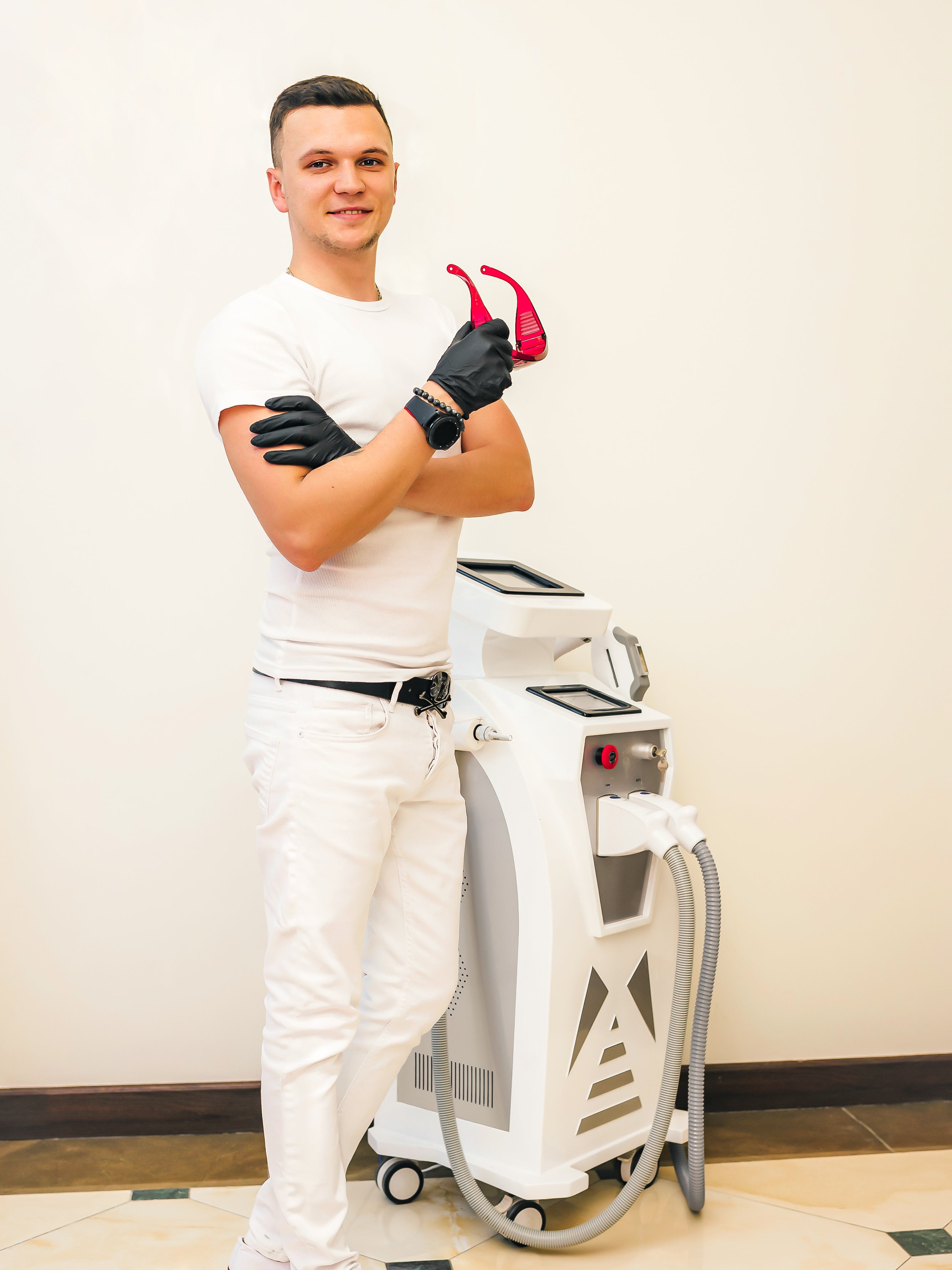
“Some clients only came to find out if I was gay”. The story of a man who works at the beauty salon
Vitaliy works at the cosmetology studio where he is doing the job that society normally perceives as “not a man’s job”: the eyelash extensions, tattooing, and recently he started doing cosmetology procedures.
It doesn’t bother Vitaliy that his job is stereotypically not seen as men’s because he genuinely enjoys it. But it wasn’t always like this.
Vitaliy is a gas and electric welder by training. He planned on working on the ships. But after one unsuccessful try, he decided sailing was not his cup of tea. That is why he started frequently changing the occupation: he has worked at a model agency for some time, then did translations. However, his main job was at the customs' house: he was an operator at the customs terminal.
Vitaliy has already been with his girlfriend for seven years already. It was her who brought him into the beauty industry: she persuaded Vitaliy to try his hand in the eyelash extensions. He took a specialized course and easily developed a new skill.
It is the eighth year that Vitaliy has worked in the beauty industry, and he is not going to change the job because he finally loves what he does. “First, I like to chat”, Vitaliy says and smiles. He goes on: “Especially I like talking to women. That is why it’s easy for me to find a common ground with the female clients”.
“Psychology has been my interest since I was a child”, the cosmetologist says. Working at the beauty salon is a perfect opportunity for Vitaliy to listen to people and try to analyze their personal problems.
“We can discuss something, I can help somehow, maybe give a piece of advice. I have always liked it”, Vitaliy says and adds it is not rare when clients come particularly to him because they want to talk.
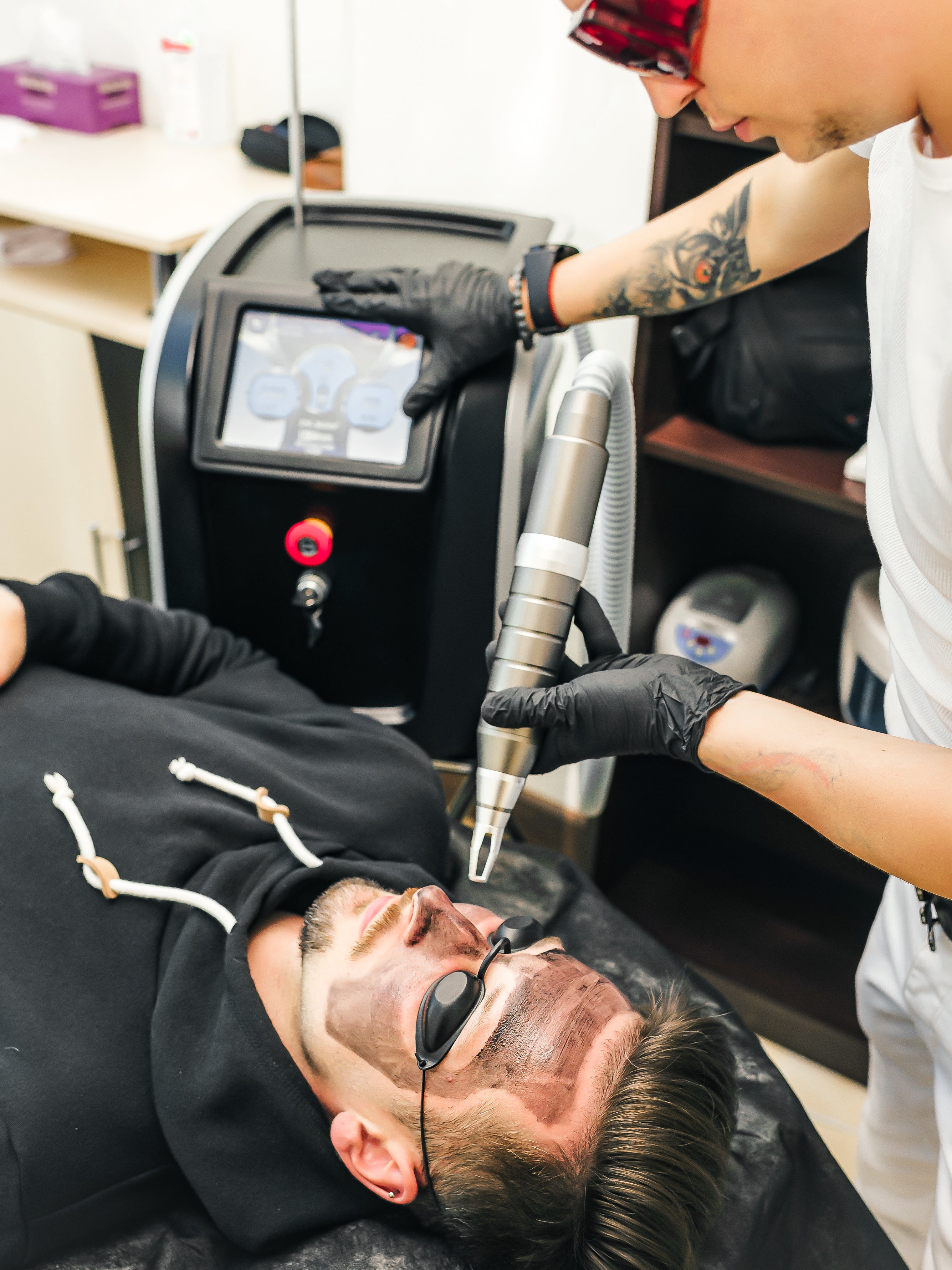
A man that works at a beauty salon is very unusual for a lot of people, that is why Vitaliy often faces stereotypes in his job. Sometimes the clients would come just to find out if he was gay.
“At first I didn’t like it, but now I find it hilarious”, he recalls. He managed to use a biased attitude to him for his benefit. He refers to it as a certain “hype”: people get even more interested in a male cosmetologist who is doing a “woman’s job”. For instance, Vitaliy’s female clients often prefer him because they look for a man’s perspective on women’s beauty.
However, unfortunate situations arise too. One client’s husband had a suspicion Vitaliy was his wife’s secret lover. As Vitaliy recalls, the man waited on him near the salon, and one day he almost punched him. “I was fast enough to step aside. At the end of the day, it all ended well: he calmed down. But it even gets to this point sometimes”, Vitaliy recalls.
When he just started working at the beauty salon, he was often mocked behind his back: “No one said anything to me, but from time to time I learned from my surrounding that I was being joked about”.
Often the jokes were homophobic: Vitaliy’s job was not perceived as masculine enough, “therefore, it was gayish”. “The men often think that making eyelash extensions is not a serious job and cannot be genuinely interesting for men”, he explains.
Vitaliy says, now the bullying has fallen silent because people realized that his job could be profitable, and the lash maker himself - successful and popular. “When I started making good money and developing our own studio with my girlfriend, the bullies just went silent. They realized I was in the right place, and people liked my work. So these issues started to go”, Vitaliy says.
The cosmetologist from Odesa is truly in demand. He went to the Czech Republic to give the masterclasses and then stayed to work at a local beauty salon. The clients queued up to him so fast that the salon’s owner was not willing to let him go home. That is why Vitaliy is confident: a stereotype that women are better experts in the beauty industry is just a stereotype.
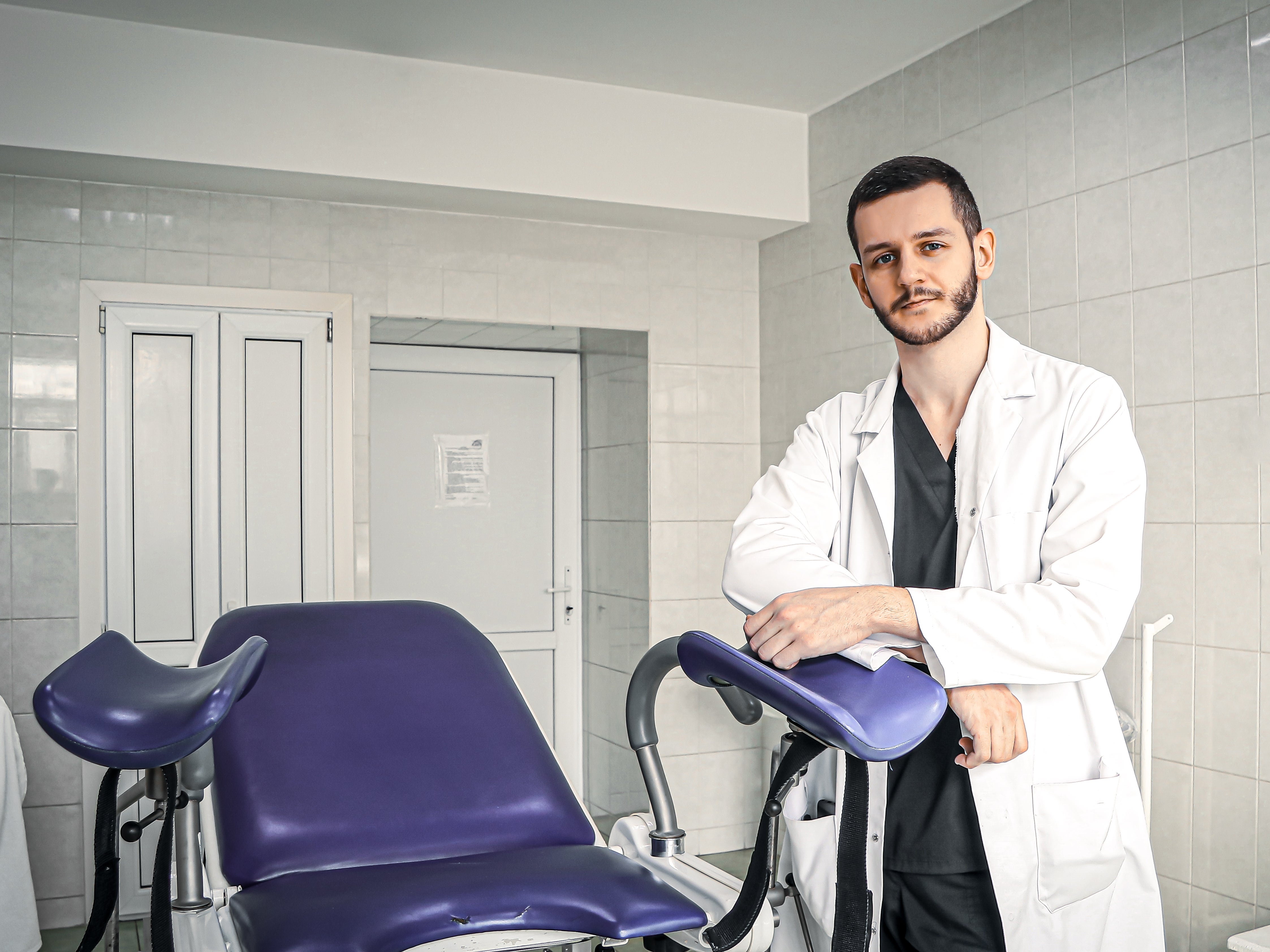
“Don’t you have a female doctor?”. A gynecologist speaks on stereotypes and awkward situations
Artem has been working as an obstetrician-gynecologist for five years already. And he is more of a black sheep in his field as the majority of gynecologists are women. Artem believes it is because of a common conception that women better understand other women, therefore they allegedly better read women’s intimate problems.
He came into the doctor’s profession by accident: Artem had no idea which university to enter when his parents jokingly suggested he entered a medical school. Since the first year of studies, a young student has thought of becoming a gynecologist. At first, it was out of selfish motives as the job was commonly seen as well-paid.
Soon, when Artem started working at a hospital and stayed for his first night shifts, he became fond of gynecology from a professional perspective too. When he speaks of his job today, he says: “Gynecologists are the happiest doctors because all our patients recover and our efforts are always justified”.
For Artem, the most important in his job is the happiness of women who come to his appointments. As a doctor, he helps to secure this happiness. However, as he is a man, Artem often faces stereotypical attitudes, inappropriate and often vulgar jokes about his job.
‘The gynecology is that part of medicine that is probably mocked the most. It is because of the human body’s part we work with. We often hear the jokes even from the doctors of other specializations’, Artem says.
It is not the mockery that bothers him the most, but the shame his patients sometimes feel at the appointments. At times Artem struggles to explain he is just doing his job and does not have any other inappropriate interests.
“Since the very beginning of my path in gynecology, I kept finding myself in awkward situations. Once a woman with bleeding arrived at 2 AM. I was called in to help her, but she anxiously asked: will you examine me? Don’t you have a female doctor?” But it was only me who was available at that time”, Artem says.
When he worked the night shifts the situations like this were quite frequent. And it was a serious obstacle for Artem’s work. During the time he worked in the field he managed to get used to such stereotypes. Now he knows how to engage in the dialog with the patients: “I always try to obey the professional ethics and only discuss my patients’ health with them. When I start to explain which pathology they have, what problems there are, they trust me more and treat me as a real expert. And the fact that I am a man does not matter for them anymore.”
Artem believes that a gynecologist’s professionalism has no gender. “First and foremost we have personalities, but only a few people get it. It feels very offensive sometimes when someone judges you by looks and not by your professional skills. It is not right”, he says.

